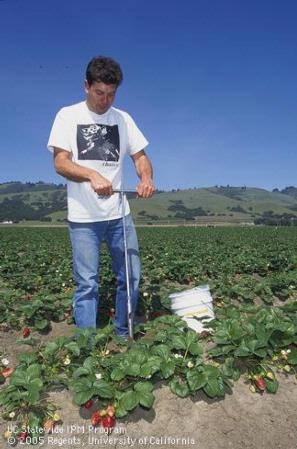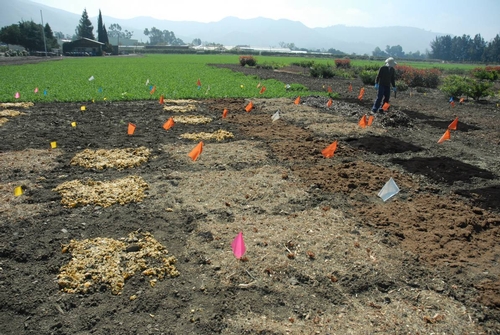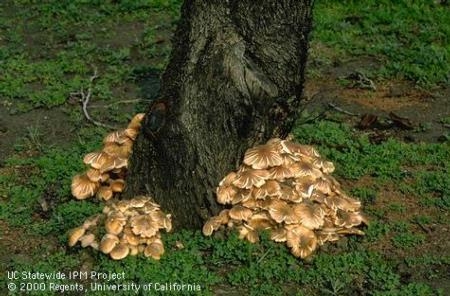- Author: Chris M. Webb
Soil testing is an important component of a plant nutrient management program for farmers, home gardeners, and agricultural service personnel. Results from these tests can be used to improve nutrient management for crop production and environmental protection.
With assistance from UC Davis’ Dirk Holstege, Ventura County Cooperative Extension Advisors Jim Downer and Ben Faber along with Staff Research Assistant Maren Mochizuki conducted research to asses the accuracy of commercially available soil tests kits.
Soil analysis from five commercially available soil test kits were compared for accuracy against soil analysis completed at the UC Davis Analytical Laboratory. Much thought and care went into writing the findings of this study. In addition to analyzing the results of the kits, suggestions for improving accuracy and the role the kits can play in nutrient management programs are discussed.
Results and discussion from this study can be viewed on this page of our website.

- Author: Chris M. Webb
Today, Ventura County Cooperative Extension's Maren Mochizuki shares with us about
a local research project.
Preliminary results on the synergistic effect of soil amendments and elemental sulfur to reduce soil pH were presented on Aug. 3 at the ASHS annual conference in Palm Desert, CA. To view the presentation abstract, please click here.
For more information on this project, please see this previous post:

Ground lemon waste, pine needles, peat moss, and coffee grounds applied to soil to ascertain impact on soil pH. Amendments were incorporated using a rototiller.
- Author: Chris M. Webb
Today, Ventura County Cooperative Extension's Maren Mochizuki shares with us about
a local research project.
Do plastic nursery pots with aeration holes improve plant growth compared to standard containers? UCCE Los Angeles Farm Advisor Don Hodel, UCCE Ventura Farm Advisor Jim Downer, and UCCE Ventura Staff Research Associate Maren Mochizuki have recently completed a 3 year study on the effect of four pot types over time on kentia and king palms (number of new leaves, stem caliper size, aesthetic quality, and root dry weight).
Preliminary results were presented on Aug. 3 at the ASHS annual conference in Palm Desert, CA. To view the presentation abstract, please visit http://ashs.confex.com/ashs/2010/webprogram/Paper4301.html.

Aeration holes study. Photo by Jim Downer.
- Author: Chris M. Webb
Today, Ventura County Cooperative Extension's Maren Mochizuki shares with us about
a local research project.
Armillaria mellea is a fungus that causes root rot in citrus, peach, and many other edible tree and landscape species. UCCE Farm Advisors Jim Downer and Ben Faber are investigating the effect of soil disturbance, organic matter, and Trichoderma (another soil fungus) inoculation on survival of peach trees planted in soil infested Armillaria mellea. Preliminary results were presented on Aug. 4 at the ASHS annual conference in Palm Desert, CA.
To view the presentation abstract, please visit: http://ashs.confex.com/ashs/2010/webprogram/Paper4324.html
For more information on symptoms and management of Armillaria mellea, please visit this UC IPM page.

Field shot showing infected tree with bare branches
and yellow leaves caused by Armillaria mellea.

Armillaria mellea
- Author: Chris M. Webb
Today Maren Mochizuki shares updates with us from a local research project.
Does planting landscape shrubs and trees below grade affect their growth and aesthetic quality? Preliminary results on deep planting were presented on Aug. 4 at the ASHS annual conference in Palm Desert, CA.
To view the presentation abstracts, please visit here and here.
For more information on the shrub project, please see this previous post:

Shrub deep planting plot after three years growth (July 2010).



